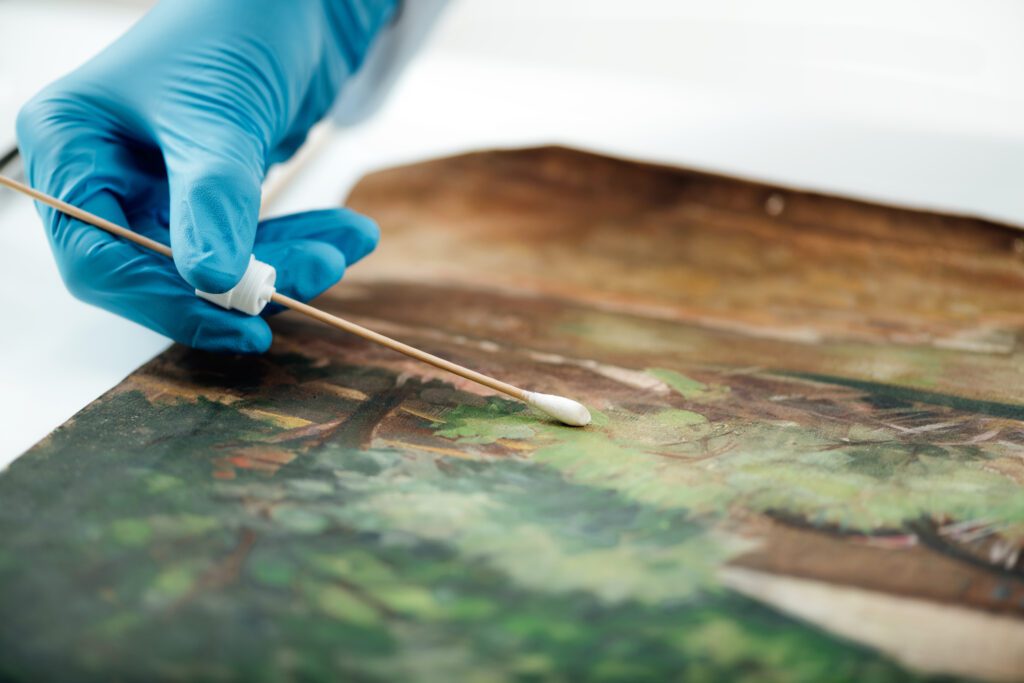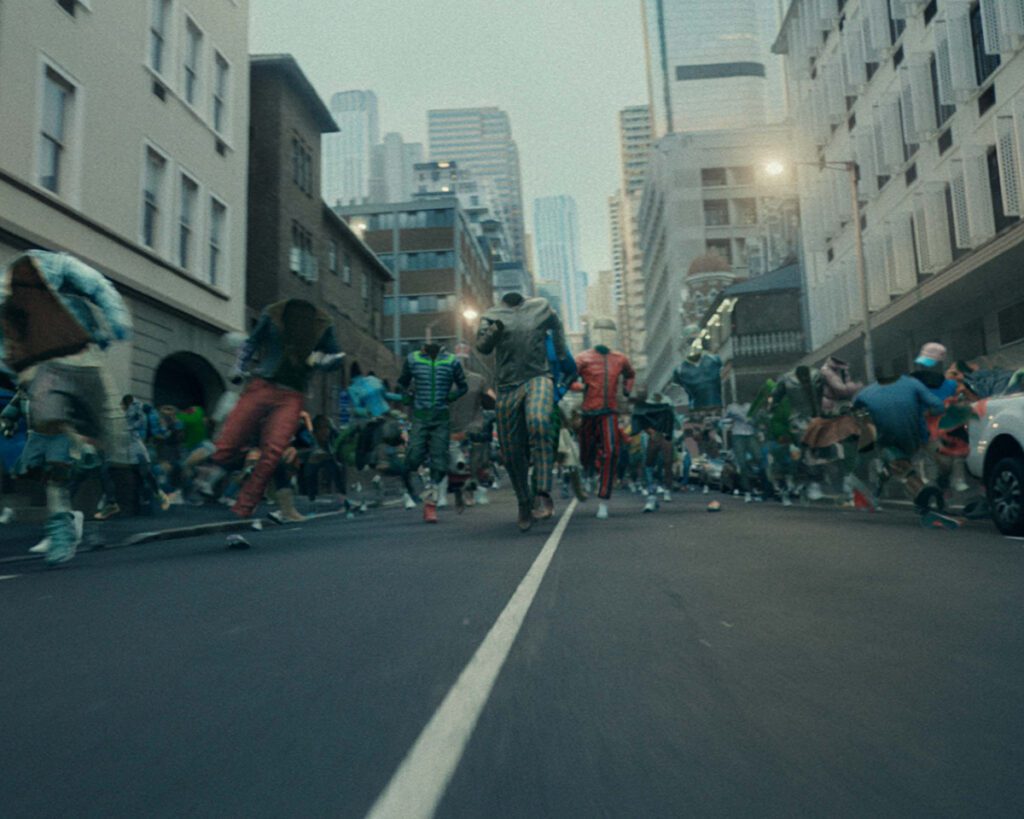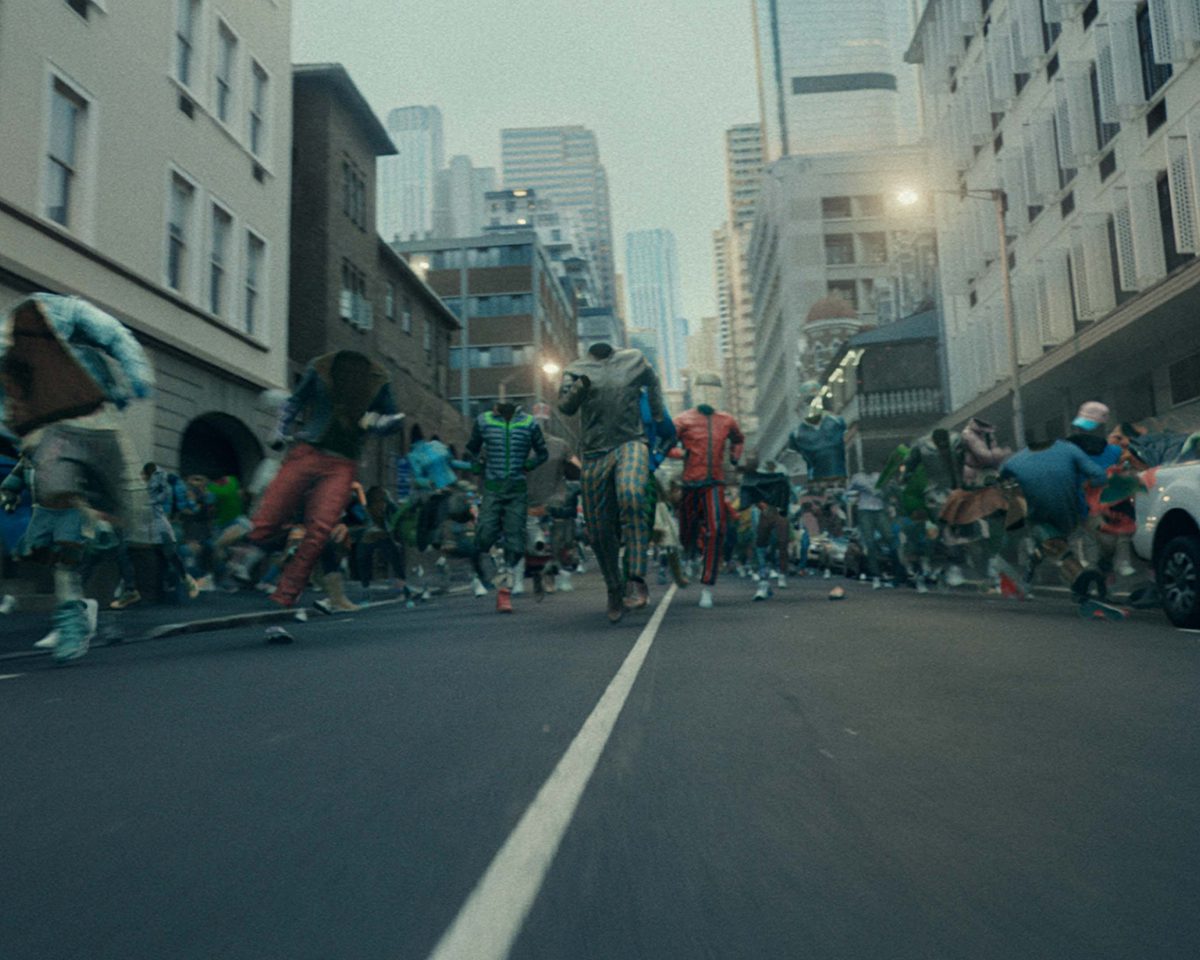In this week’s Our Take, primitive life restores high art, natural fibres take on zombie hordes of polyester, and we look at some of the ways we use technology as a mirror, through an exhibition that explores echo chambers, and some research explains why we’re obsessed with our online selves.
PRIMITIVE LIFE RESTORES HIGH ART

In a discovery that could only come from a family with both science and art in its DNA, microbiologist Pilar Bosch and her art-restorer mother, Pilar Roig, have teamed up on a revolutionary project.
Bosch stumbled upon a wild idea for her PhD back in 2008—using bacteria to clean artworks. Turns out, it was exactly the solution her mother needed while restoring 18th-century frescoes in Valencia’s Santos Juanes church, which were glued down during a botched 1960s restoration.
The duo’s €4 million project involves training bacteria to munch away at the animal collagen-based glue, producing enzymes that dissolve it. Once the bacteria get to work, they’re mixed with an algae-based gel and spread onto the paintings like a bacteria-powered beauty mask. Three hours later, voilà—the glue is gone, and the paintings are back to their original glory, free from decades of adhesive buildup.
Roig recalls the “horrible” old method of scrubbing with sponges and warm water, which risked damaging the artwork. But thanks to her daughter’s scientific genius, those days are over.
Bosch’s bacterial cleaning crew has already gone international, working in Italy and Spain. And the next mission? Bacteria that can tackle graffiti.
Sometimes, the biggest and best solutions are microscopic.
Wool War Z

In a world drowning in cheap, synthetic clothing, Woolmark’s “Wear Wool, Not Waste” campaign is shouting from the rooftops, “Time to swap your plastic pants for planet-friendly wool!”
The campaign’s 60-second film features a zombie invasion of discarded synthetic clothes—because, spoiler alert, every piece of polyester ever made still haunts the planet.
John Roberts, Woolmark’s Managing Director, gets right to the stitch of it: “Wear Wool, Not Waste” is an urgent call to citizens and the industry at large to re-evaluate fibre choices. Merino wool is inherently natural and renewable and has the potential to be a transformational solution to fashion’s impact problem.”
Continuing their baa-ttle for sustainability via the “Filter by Fabric” initiative, Woolmark is also asking brands to come clean about what’s really in their clothes. No more pretending synthetics are something they’re not! Wool, on the other hand, is proudly wearing its sustainable heart on its sleeve. It’s natural, renewable, biodegradable, and, best of all, it’s the world’s most recycled apparel fibre. Want to save the world from a zombie apocalypse? Start with your sweater drawer
Have a word with yourself

Echo Chamber by post is an immersive piece created for the 2024 Cornell Council for the Arts exhibition, exploring “Freedom of Expression”.
Located at Cornell’s Milstein Hall, the installation is set in a 10-foot aluminium booth, surrounded by red vinyl curtains. Inside, participants engage with controversial prompts, and, using AI to generate modified, but related, statements, the booth talks back through eight speakers embedded in acoustic foam, creating a soundscape that distorts the original message.
The point is to highlight the tension between free speech and digital echo chambers.
An interesting way to understand our relationship with the online world? Or a chamber of horrors? We are undecided.
obsessed with ourselves

Ever spent hours scrolling through your own Instagram stories archive or feed? You’re not alone.
Social media is the digital version of ourselves, curated to show the best angles, the tastiest meals, and the most luxurious holidays. We can make a three-night get-away in Benidorm look like The Maldives.
We know the reality is different, but it doesn’t stop us re-living our own lives through rose-tinted glasses. Like going into your sent mailbox, to re-read an email from the recipient’s perspective. Just me? Okay.
But don’t take our word for it, phycologist Zoe Mallet says, “It’s a subconscious attempt to enhance our social standing, increase our chances of belonging and create a positive self-image, which is part of our survival coping mechanisms as humans.” Pretty deep stuff.
So next time you find yourself comparing your life to a day in June 2018, remind yourself you were probably having a sh*t day then too!
